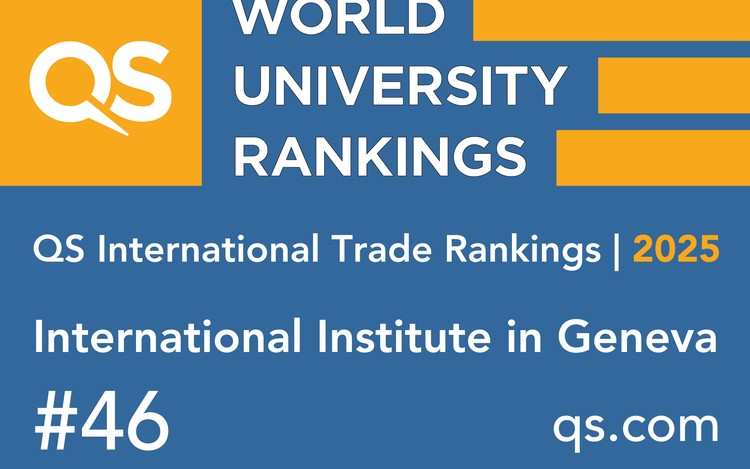Description des cours
-
MKG 615 – Consumer and Market Insight Consumer and Market insights is about understanding the consumers and assessing the market landscape in order to define the optimal strategy for a product/service. The objective of this course is to train the students on the key tools of Market Research, and develop their ability to think strategically, by identifying the right business questions, turning them into a concrete and clear learning plan, then understanding and defining consumer needs to come up with a strategic recommendation. Students will have the ability to use their analytical skills and strategic thinking to build insightful recommendations.6.00
-
MGT 657 – Logistics & Project Management This course provides a systematic overview of design, control and improvement of operations, projects, logistics and supply chain related management issues. It renders the rationale and practices of optimizing the global supply chain and leveraging it as a value-creating strategy to gain competitive advantage in the global marketplace. The project management key success factors will be presented, examined, discussed, and applied by the students on concrete projects. In the meantime, it addresses issues related to sustainability, quality management, and the challenges of establishing trust and collaboration amongst operation partners.6.00
-
COM 635 – Integrated Branding & Storytelling The course of Integrated Communication aims at giving the student the tools to analyze and develop brand communications initiatives. The course will look at the evolution of communication and advertising technique, focusing on the latest theories and approaches in digital era. The learning process will be based on theory, case studies and real-life classwork to learn how to develop a communication campaign, starting from the analysis of the business challenges to defining the consumer insight, briefing process, creative development and assessment. The key learning outcome of the course is giving the ability to the students to analyze communications, their effectiveness and manage the communication/creative process.6.00
-
ECO 610 – Global Economics & Development This course aims to examine the working of a national economy and the critical role that businesses play in it. It provides insights into the workings of economic policy and the issues discussed in current policy debates. It studies business cycles and the impact of policies on short-term fluctuations. It then turns to the longer term by examining economic growth and its drivers. It studies development and the strategies pursued by successful developing countries. It analyses the Sustainable Development Goals and contributes to a better understanding of the need for multilateral and regional economic cooperation and national economic policies for sustainable development. The course provides an understanding of challenges confronting the global economic order, impacts of the trade and investment policies, the role of financial system and the regional market integration.6.00
-
MGT 620 – Change Management & Environment, Social and Governance (ESG) This course introduces students to organisational design and why, in today’s ever changing macro context, an organisation’s success is dependent on its ability to evolve structures, processes and people in an agile way. Topics include strategy, sustainability, ESG, organisational and individual performance management, leadership and change management.6.00
-
TEC 635 – Exploring, Visualizing & Storytelling with Data We are living in an age of information overload. The vast amount of data we continuously generate can easily become a barrier to fast decision making instead of an enabler. By using effective exploration, visualization and storytelling techniques we can, instead, convert enormous data feeds into meaningful, clear and thorough visual stories that can enable the right business decision at the right time. This is why Data Visualization and Storytelling are among the vital skills that both business analysts and managers at all levels need to acquire to win in the current “Big Data” era.This course covers data exploration and visualization techniques, elements of cognitive and colour theory and provides a practical methodology to move from business questions to impactful visual stories using modern data visualization tools (Power BI). Students will practice their knowledge on real-world data through a number of business case studies.6.00
-
MKG 610 – Global Marketing in the Digital World In a world of increased globalization and technological advancement, companies have had to rethink their marketing strategies, address the challenges stemming from digitalization, and seize the opportunities arising from operating in the digital age. In this course, students will gain an understanding of the foundations of global marketing and learn how to develop a marketing plan that takes into account the macroeconomic, cultural, and technological factors that affect companies in their effort to create brands that resonate with today’s customers. The program will emphasize the ways in which digital marketing, e-commerce, social media can be leveraged to engage with the company’s target audience and effectively market a product or service that creates value for stakeholders.6.00
-
MGT 630 – Turning Idea to Success Innovation can no longer be viewed as a sideshow. It is the way to do business and a key driver of sustainable growth. This module is designed to help students develop the skills and knowledge necessary to turn innovative ideas into successful businesses. Students will learn the importance of innovation for businesses, different types of innovation, how to identify and evaluate potential business opportunities, develop effective business plans, understand the importance of customer validation in business planning and execute on those plans to achieve their goals. The module will cover key topics such as innovation, business development, and business plan development, with a focus on practical application.6.00
-
MKG 698 – Digital Marketing and Communication (Capstone Course) The goal of the Digital Marketing & Communication Capstone course is to apply concepts and theories learned during the year but also for students to have a concrete and practical implementation of some of the Digital Marketing & Communication mandates in relation to Business Strategies, Strategic Planning, Market and Competitors Analysis (Where and How to compete). Students will review and/or learn successful best practices and apply them in a concrete business case which would be presented at the end of the capstone class.6.00
-
NEG 620 – Negotiation This course aims to prepare students for effective negotiations across different and evolving settings, from business to international organisations. Students will learn a variety of negotiation strategies, techniques, and approaches that will immediately impact their negotiation effectiveness and ability, allowing them to succeed in any career where mastering Negotiation Fundamentals is essential. The course will adopt a case study approach, allowing students to develop/improve their knowledge and skills in communication, ethical reasoning, analytical skills, reflective reasoning, multiculturalism, and diversity. Throughout the course, the students will have opportunities to practice and fine-tune the knowledge and skills being taught.6.00




.PNG)








